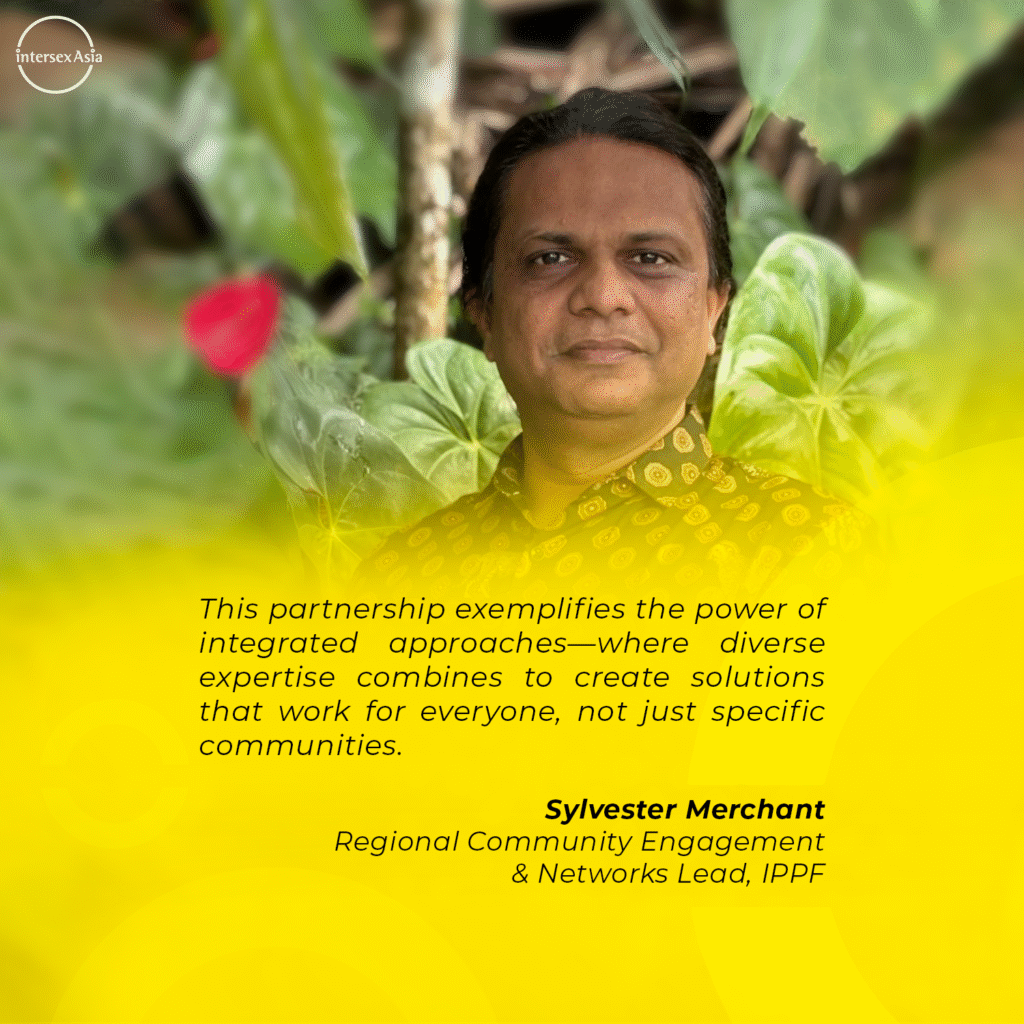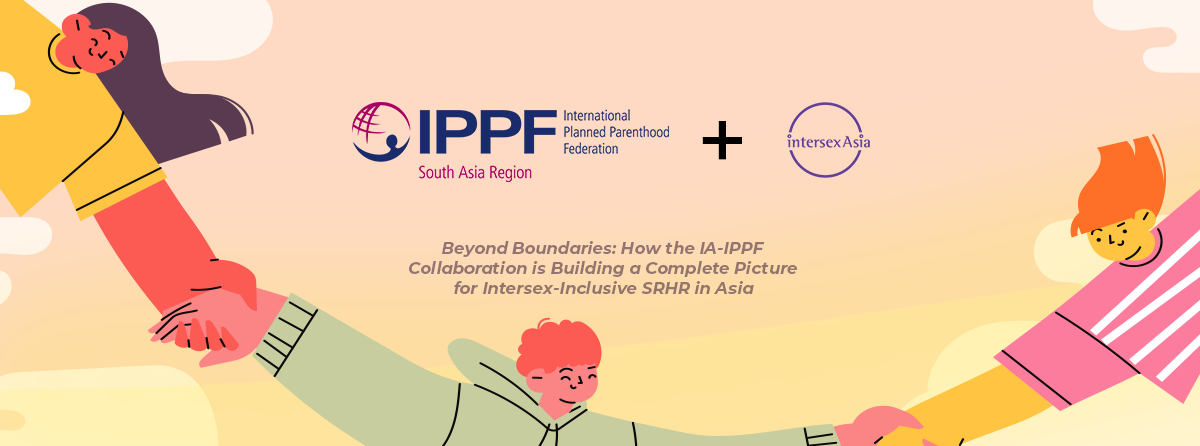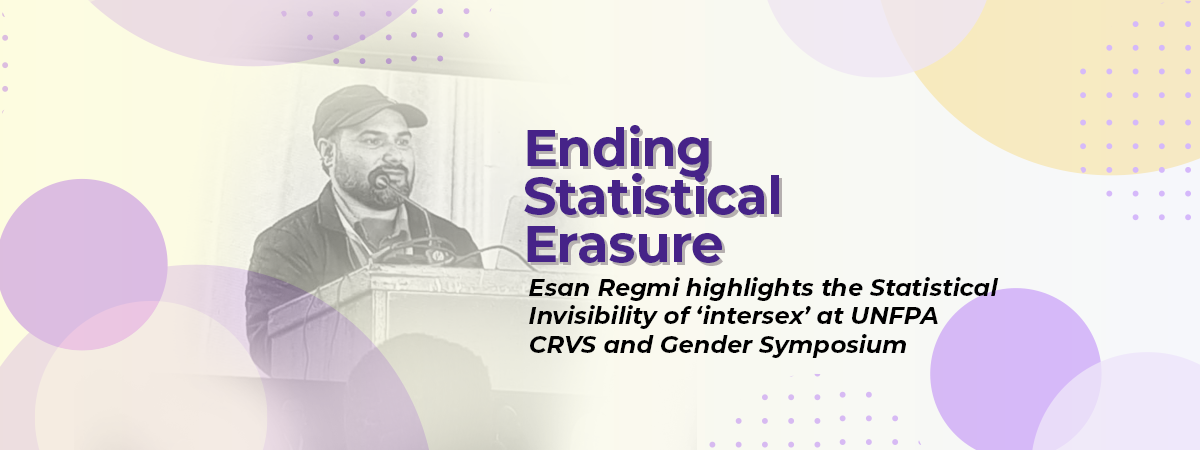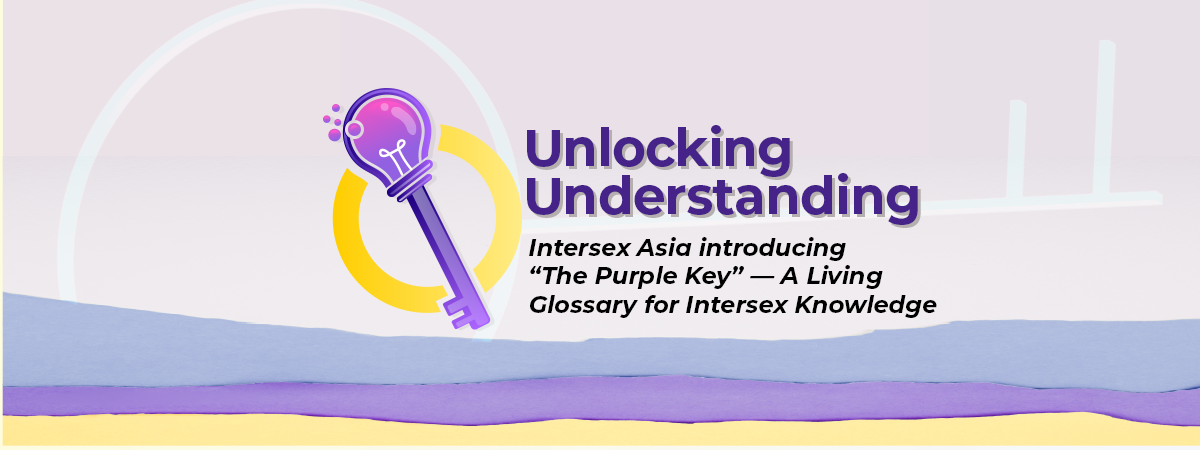A Partnership That Multiplies Impact
On June 18, 2025, 45 people across Asia came together in a virtual space—intersex individuals, healthcare advocates, and community leaders—all united by a shared understanding: that true progress in the intersex and SRHR movements can only happen when we understand each other’s issues and its intersectionalities and work together.
The regional webinar “Understanding Intersex – Building Awareness and Understanding” represented more than just another educational session. It was a new approach to advocacy as well as new effort on inclusive SRHR and service delivery, where Intersex Asia and the International Planned Parenthood Federation demonstrated that when specialized expertise meets extensive reach, the result isn’t just addition—it’s multiplication of impact.

Intersex Asia brings seven years of specialized advocacy expertise, strong community connections, and deep understanding of the unique challenges facing intersex individuals across the region, providing the authentic foundation for meaningful change. IPPF, with its extensive regional network, offers the reach and resources necessary to amplify intersex voices beyond traditional advocacy circles. Their established relationships with healthcare systems, policymakers, and SRHR organizations create opportunities for systemic integration, especially looking at gaps in current SRHR frameworks regarding intersex inclusion.
Together, these complementary strengths create a cross-movement solidarity that transforms how we approach inclusive advocacy. Silvester Merchant, IPPF’s Regional Community Engagement & Networks lead, outlined how this partnership “exemplifies the power of integrated approaches—where diverse expertise combines to create solutions that work for everyone, not just specific communities”.
Voices from the Ground: Real Stories from the Underrepresented Intersex Lives
Experts estimate that between 0.5% and 1.7% of the population is born with intersex traits, which is higher than the population of Japan. This once again affirms that this population group is not rare, yet severely underrepresented. In the webinar, when community voices took center stage and revealed how systemic challenges intersex individuals are facing, it’s even clearer that intersex people are not represented enough.
Momo from IHRI India shared insights that demonstrated how healthcare gaps for intersex individuals often reflect broader systemic issues in service delivery and provider training. When healthcare systems fail to understand intersex experiences, they reveal weaknesses that impact the quality of care across multiple communities. Maimun, representing Intersex Bangladesh, highlighted how legal and social recognition challenges faced by intersex individuals mirror broader struggles for bodily autonomy and self-determination that resonate across gender equality and reproductive rights movements. Esan Regmi from Campaign for Change Nepal provided perspectives on how societal stigma and discrimination create barriers that extend beyond individual experiences to affect family systems, community acceptance, and social cohesion.

These community speakers collectively illustrated a crucial truth: intersex experiences serve as a lens that reveals interconnected challenges across healthcare access, legal recognition, and social awareness. As Hiker Chiu powerfully stated, “Intersex is biological and not Gender Identity. We exist and we are not disordered, and appeals to halt unnecessary medical interventions that often harm intersex individuals.” This clarity helps dispel misconceptions while highlighting how understanding intersex realities strengthens advocacy for bodily autonomy, informed consent, and dignity across all communities.
The Missing Pieces: How Intersex Exclusion Creates Gaps That Affect Everyone
The webinar revealed ten critical areas where intersex exclusion creates systemic gaps that ultimately affect the quality and comprehensiveness of healthcare and rights protection, not just for intersex individuals but for everyone:
- Bodily Autonomy represents perhaps the most fundamental intersection. Intersex individuals face medically unnecessary, non-consensual “normalization” surgeries in infancy or childhood, violating core principles of bodily autonomy. These procedures, often irreversible and driven by societal norms rather than medical necessity, highlight broader challenges in protecting individual agency within healthcare systems.
- SRHR Service Exclusion reveals how intersex people often don’t receive adequate support in health programs. When they are included, their specific needs frequently aren’t taken seriously, exposing gaps in service design and provider training that affect quality of care across diverse populations.
- Healthcare System Gaps emerge because health services typically operate within binary frameworks focused only on male and female experiences. This limitation means intersex people miss out on essential care while simultaneously revealing how rigid categorization can create blind spots that affect anyone who doesn’t fit standard protocols.
- Trauma-Informed Care Deficits become apparent as intersex adults often don’t receive appropriate support, especially following difficult medical experiences. This gap highlights broader needs for trauma-informed approaches that would benefit all patients with complex medical histories.
- Menstrual Health Program Limitations surface when intersex people who menstruate face exclusion and discrimination in menstrual health initiatives. This reveals how assumptions about who menstruates can create barriers for various communities, including transgender men and non-binary individuals.
- Medication Access Barriers are exemplified in places like the Philippines, where intersex people struggle to access necessary medications. These challenges expose broader pharmaceutical access issues that affect multiple communities with specialized medical needs.
- Emergency Response Oversights occur when emergency protocols fail to consider intersex individuals, revealing how crisis response systems may inadequately serve various vulnerable populations.
- Legal Recognition Voids affect many countries that lack laws protecting intersex people, making healthcare access difficult. These legal gaps highlight broader challenges in ensuring comprehensive anti-discrimination protections.
- Societal Stigma Impacts demonstrate how strict gender norms create judgment and discrimination that can cause families to hide intersex children. This stigma reflects broader social rigidity that affects anyone who challenges traditional gender expectations.
- Data Collection Blind Spots emerge from insufficient information about intersex people, making it difficult to create effective programs. This data gap reflects broader challenges in inclusive research and evidence-based policy development.
Echoing those points, Prashant Singh, Research and Advocacy Officer at Intersex Asia, provided crucial analysis of legal frameworks across Asia, highlighting both existing challenges and opportunities within current structures. His presentation demonstrated how legal recognition impacts intersex lives while identifying areas where policy development could benefit multiple communities seeking recognition and protection.
The Start of Something New
As Hiker Chiu and Silvester Merchant emphasized in their concluding remarks, this webinar represents not an endpoint, but a start of something new, something remarkable. And as the spirit of this event continues, we invite SRHR organizations, allies, and policymakers to join us in building a movement that respects, protects, and uplifts intersex individuals. Together, we can ensure that no one is left behind.




